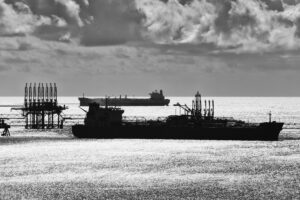The FuelEU Maritime regulation, part of the European Commission’s Fit for 55 legislative package, came into force on January 1, 2025. Due to delays in the process of incorporating the FuelEU Maritime Regulation into the EEA Agreement, the application of the Regulation will be delayed in Norway and Iceland.
This means that Norwegian and Icelandic ports will be regarded as third-country ports in a FuelEU context from January 1, 2025, until the incorporation of FuelEU in the EEA Agreement.
Meanwhile, the President of the Republic of Finland ratified amendments to the Act on Environmental Protection in Maritime Transport and the related acts on Dec. 30. The amendments also complement the FuelEU Maritime Regulation on the use of renewable and low-carbon fuels in maritime transport in the EU.
FuelEU Maritime is part of the EU’s climate legislation package, “Fit for 55.” The new regulation promotes the use of renewable, low-carbon fuels and clean energy technologies for ships.
“Danish shipping companies are already investing heavily in green ships, fuels, and technologies that can reduce fuel consumption and improve energy efficiency,” said Nina Porst, director of climate, environment, and safety at Danish Shipping.
FuelEU Maritime is the latest addition to the EU’s regulation of the shipping industry. On January 1, 2024, shipping was included in the EU Emissions Trading System (ETS). Allowances for permitted emissions will be gradually reduced, making it increasingly expensive for companies to emit greenhouse gases.
Danish Shipping supports the new regulation but highlights the need for global climate regulation of the shipping industry.
“I hope FuelEU Maritime can help drive both the demand for and production of green fuels for shipping. Currently, the lack of green fuels at competitive prices is the biggest challenge for the green transition of shipping.
“Additionally, it is important to emphasise that while the EU’s regulation of shipping emissions is undoubtedly a step in the right direction towards climate neutrality, it is crucial that EU countries also push for international rules within the IMO, applicable regardless of where ships operate,” added Nina Porst.



